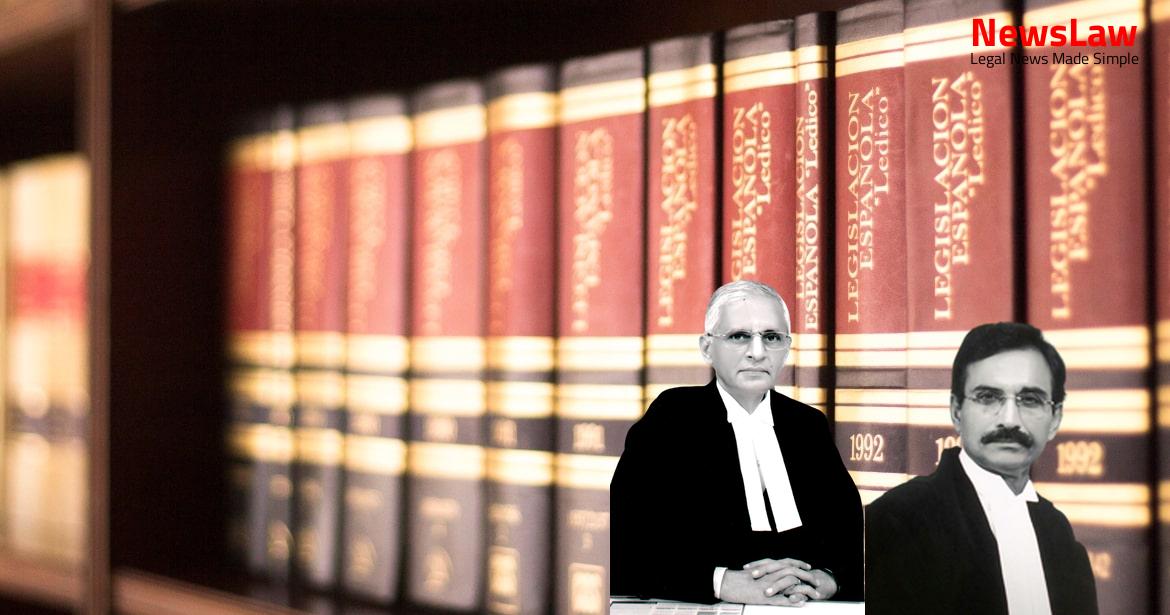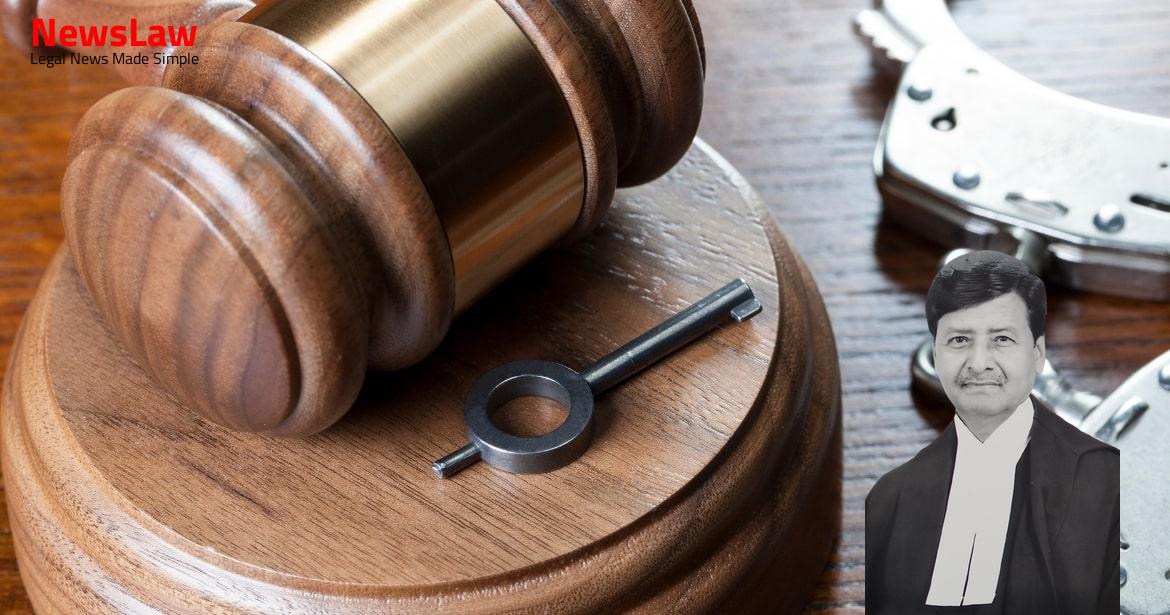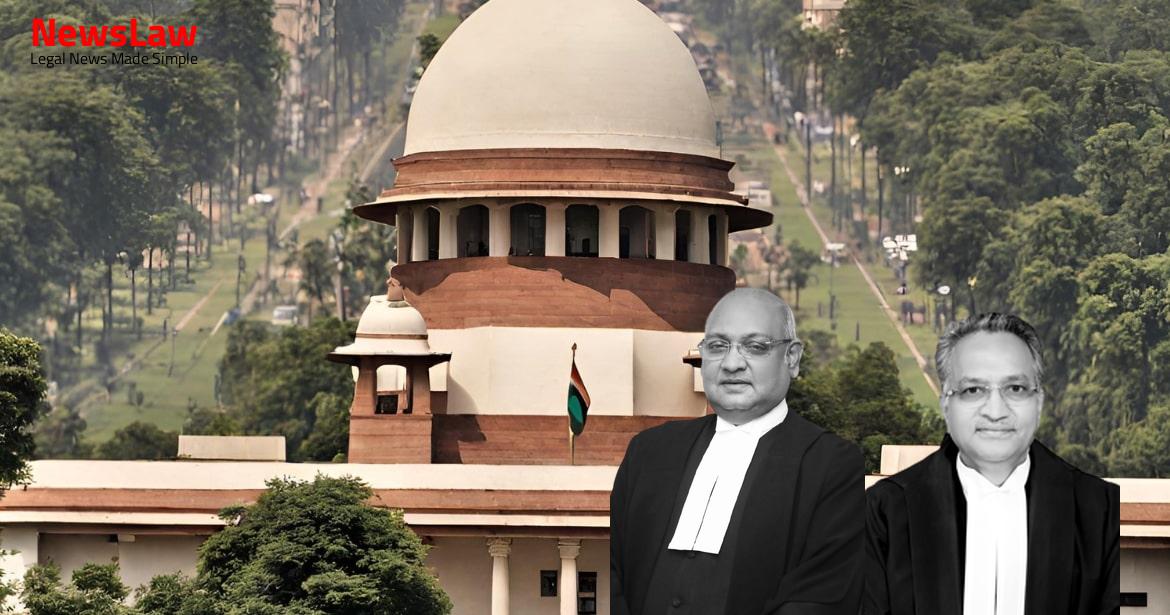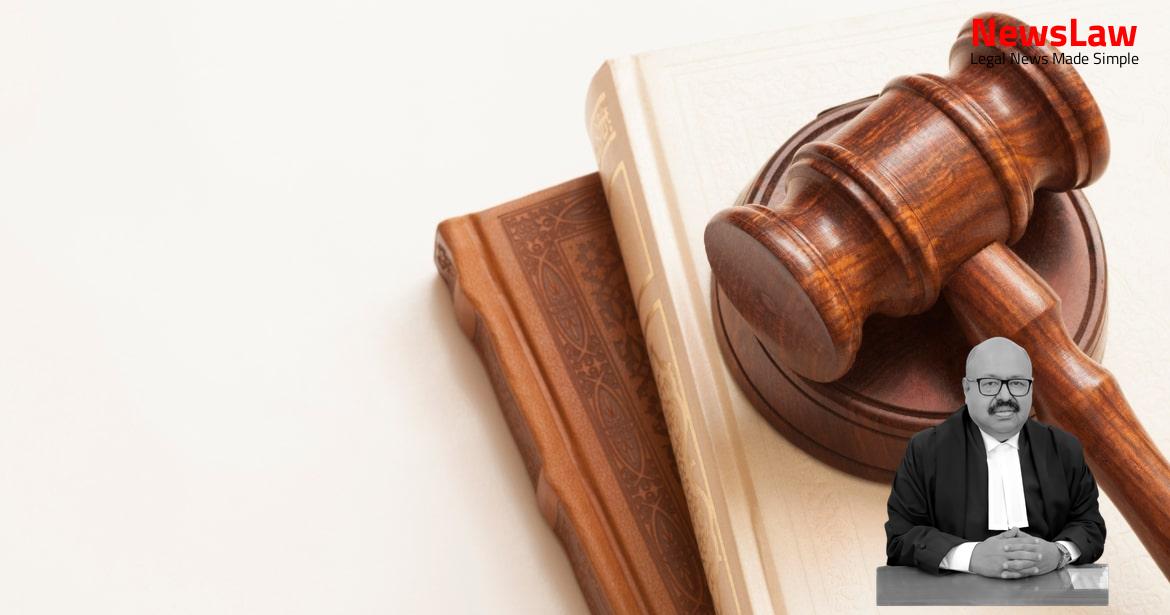In a recent legal case, the court delved into a thorough analysis of the evidence and legal arguments presented by both parties. This analysis included a review of relevant case law and precedents to assess the validity of the lower court’s decision. The court’s reasoning ultimately led to a significant judgment that highlighted the importance of following legal procedures in appointments. Let’s explore how the court’s meticulous examination shaped the outcome of the case.
Facts
- The appellant, despite not being found suitable for a post initially, was appointed as a Lecturer in Geology in 2002.
- The Executive Council of the University accepted the recommendation for the appellant’s appointment as a Reader in Geology in 2003.
- Subsequently, the appellant was appointed as a Reader in Geology in response to another advertisement.
- The appellant filed an appeal challenging the dismissal of a writ petition in 2014 by the Allahabad High Court.
- The appellant’s service was terminated following the dismissal of the writ petition.
- Complaints were made to the Hon’ble Chancellor regarding the legality of the appellant’s appointment after a significant period had passed.
- The High Court of Allahabad dismissed the Writ Petition No.17066 of 2014.
- The Hon’ble Chancellor found that the appointment of the appellant was not in accordance with the law.
- An order was issued under Section 68 of the 1973 Act to set aside the successive appointments and promotion of the appellant.
Also Read: Presumption of Genuine Endorsements in Cheque Case
Arguments
- Ms. Neela Gokhale appeared as counsel for the appellant.
- Mr. Gaurav Agarwal represented the Respondent-University.
- The Hon’ble Chancellor determined the appellant’s appointment as illegal.
- The Selection Committee under Section 31(4)(a) of the 1973 Act should have had three experts nominated by the Hon’ble Chancellor.
Also Read: Medical Negligence and Compensation: A Landmark Decision
Analysis
- Point 1: The court analyzed the evidence presented by both parties in detail.
- Point 2: The court considered the legal arguments put forth by the appellant and respondent.
- Point 3: The court discussed relevant case law and precedents in the analysis.
- Point 4: The court evaluated the lower court’s decision in light of the evidence and arguments.
- Point 5: The court provided reasoning for its decision based on the analysis conducted.
- The order passed by the Hon’ble Chancellor, Registrar of the University, and the High Court are not sustainable in law.
- No finding in the impugned order of the High Court stated that the appellant lacks the required qualification.
- The appellant had served for 12 years before termination order was issued.
- Termination of the appellant is deemed unsustainable in law due to the above reasons.
- The appellant has already superannuated during the appeal.
- Relief will need to be adjusted accordingly.
- The appellant continues to occupy University accommodation due to the order of status quo passed by the court.
Also Read: Remand of Writ Petition for Restoration and Decision on Merits
Decision
- The appellant’s appeal has been allowed.
- No costs are ordered for pending applications.
- The appellant must vacate the University accommodation within three months.
- Orders from the Chancellor, Registrar, and High Court are quashed.
- All terminal benefits should be paid to the appellant within three months.
- The period between the termination and retirement will be considered as continuous service for terminal benefits, but no back wages for unemployed period are granted.
- Appellant is not entitled to continue in the accommodation after superannuation.
Case Title: RAM CHANDRA Vs. STATE OF U.P ANR ORS. (2022 INSC 542)
Case Number: C.A. No.-011212-011212 / 2017



